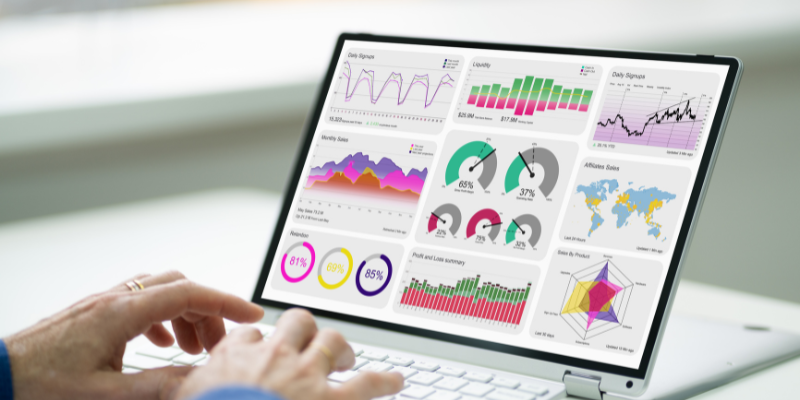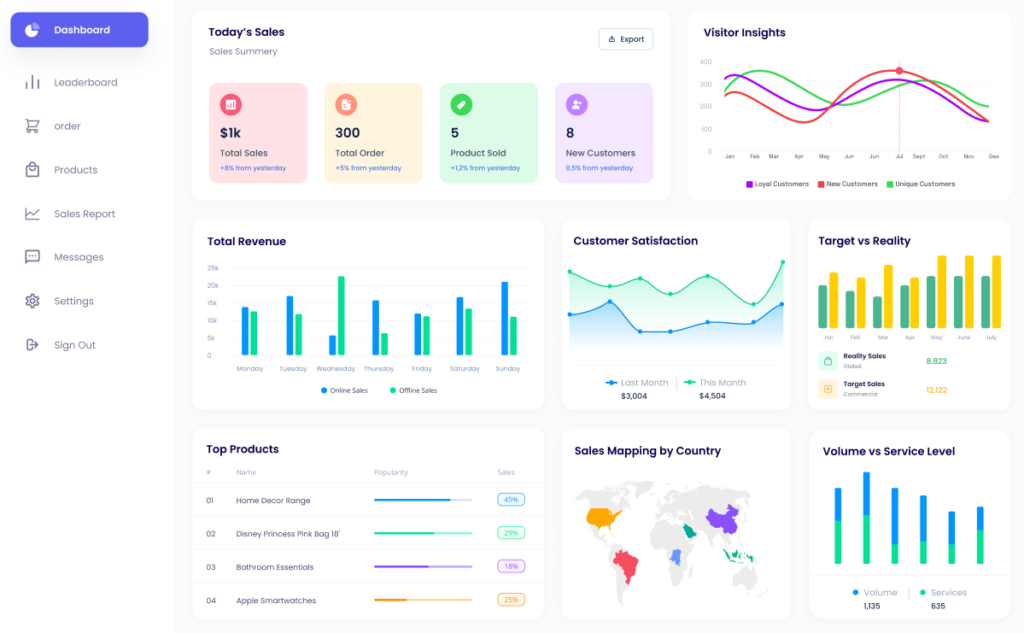Why Businesses Outsource Data Analytics?


As the complexity of business data grows, enterprises are turning to third-party analytics providers for assistance. Here are ten reasons why businesses choose to outsource data analytics.
There are numerous reasons why an organization might outsource the analysis it has already collected. Companies frequently collaborate with third-party providers to accelerate and refine their analytics insights and connect these insights to action.
Amaresh Tripathy, global business leader of analytics at Genpact, stated that the COVID-19 challenges have significantly increased demand for analytics outsourcing.
“We are increasingly seeing such relationships become strategic, where partners provide insights and participate in enabling action as a result of those insights through digital tools and change management activities,” Tripathy said.
This is frequently used as a center of expertise model, in which the partnership brings together a cross-functional team of business and technical experts and industry accelerators. Service providers bring digital tools, collaborations with other technology vendors, and greater access to third-party data to drive speed and sophistication.
Enterprises are also dealing with an increase in the volume and variety of data types.
“Outsourcing data analytics not only helps to reduce the cost of analytics but also increases the value and speed of analytics,” said Sameer Dixit, Persistent Systems’ general manager of data, analytics, and AI/ML.
What is Data Analytics Outsourcing?
As businesses rely more on analytics, they often lack the resources to conduct these analyses. According to Benjamin Taub, CEO of Dataspace, outsourced data analytics typically addresses two major shortcomings:
- A lack of expertise in approaches and technologies.
- A shortage of hands to gather and analyze data.
Taub frequently sees outsourcing teams being brought in as experts to consult on and manage projects, as supplemental staffing, or as specialty firms with in-depth knowledge of specific business areas or analytics techniques.
Historically, the banking, financial services, and insurance industries drove analytics outsourcing to implement risk and fraud analytics, according to Alex Bekker, head of ScienceSoft’s data analytics. However, Bekker now observes that analytics outsourcing is expanding across more industries, particularly healthcare and retail, with the most popular areas of interest being predictive and prescriptive data analysis.
“By outsourcing these advanced analytics types, businesses receive ML and AI-driven recommendations and forecasts for the next optimal step in their business processes,” Bekker explained.
Read more: How to Data Analytics Outsourcing?
10 Reasons Businesses Outsource Data Analytics
1. Analyzing New Data Types
According to Rahul Prasad, head of the data and analytics practice at Infostretch, there has been a significant increase in outsourcing firms with cross-domain knowledge for integrating new data types into analytics workflows. For example, the finance industry is outsourcing the use of unstructured data in analytics, such as news feeds and market research data. Insurance companies are outsourcing domain expertise to improve video analysis, while the retail sector is outsourcing analytics to enhance hyper-personalization, supply chain management, and inventory optimization.
2. Improving Forecast Precision
Tripathy stated that the main reasons businesses work with service providers are to gain faster, smarter access to their data and to derive more business value. Some companies are forming outsourcing relationships where compensation is tied to business outcomes, such as increased accuracy. For instance, Genpact has established strategic partnerships with CPG companies, promising to improve forecasting by a certain percentage or reduce inventory by another, which allows clients to share or transfer risk.
3. Creating Algorithms
When Ben Schein, vice president of data curiosity at Domo, a BI platform, led a data science team at Target, he delegated many manual or less advanced data preparation tasks to a group in Bangalore. As basic tasks become easier to automate, he predicts a shift towards outsourcing more complex skills, such as developing algorithms.
These relationships should ensure that the outsourcing partner is not creating a black box. The model must remain adaptable, even if the creation or maintenance is outsourced.
“I don’t want a static algorithm if I want to create an algorithm for the likelihood of repeat purchases. I’d like to be able to configure the algorithm and, if possible, own the code,” Schein stated.
4. Making Up for the Lack of Internal Expertise
Enterprises may also outsource data analytics tasks to compensate for the lack of internal knowledge and personnel to handle implementation and testing. “Analytics outsourcing, like traditional IT outsourcing, allows you to get a lot more done in a shorter period of time,” said Taub.
The key is to understand what you truly require. An outsourcing partner can help teams discern the subtle differences between data scientists and Python programmers who are familiar with some data science libraries.
5. Obtaining Domain Knowledge
According to Charles Miglietti, CEO and co-founder of Toucan Toco, a BI platform, “Outsourcing provides enterprises with access to data analytics expertise when needed and allows them to quickly find specialists with up-to-date skill sets in the specific areas required.” This can involve understanding how to evaluate, choose, and maintain the analytics technology stack, as well as business aspects. For instance, experts in the pharmaceutical and consumer goods industries can help solve complex data collection problems that require agreements covering large distribution networks.
“If you choose a partner with domain expertise in your space, you can also expect to learn about best practices in your industry and powerful new ways to use data and benchmark metrics to guide your business strategies,” Miglietti said.
6. Using Breakthrough Technology
Enterprises frequently outsource data analytics when implementing breakthrough technology far beyond their current skill levels. “These types of projects are more difficult to execute, but they also provide new sources of revenue and unique differentiation to customers,” said David Tareen, SAS Institute’s director of AI and analytics. His team, for example, worked with a utility that wanted to use drones and computer vision to monitor underground heat pipes for leaks and plan repairs. This involved equipping drones with heat-detecting cameras and streaming video data to a deep-learning model trained to identify small leaks.
7. Enhancing Data Storytelling
Data analytics outsourcing can help improve “data storytelling,” a method of interpreting and analyzing data through narratives that make business communication more persuasive and memorable.
“As a rule, people request analytics outsourcing when they have massive amounts of data, but they can’t read it and can’t leverage it to its full potential,” said Ivan Kot, director of customer acquisition at Itransition Group.
“At the same time, they create all kinds of narratives, like brand visions or monthly plans, and in most cases, these narratives aren’t connected with data.”
For example, operational managers may focus on improving metrics like customer acquisition or lifetime value. Team leaders may aim to enhance the KPIs of active managers. CEOs may want to start a new business, while founders may aspire to create hundreds of jobs in their home countries.
“All these narratives are related, but almost nobody has the bigger picture or understands how their efforts contribute to the common mission,” Kot said. A BI consultant can combine all existing stories and connect the dots between different data views to create a cohesive narrative that everyone can follow.
8. Accelerating Time to Market
Mike O’Malley, senior vice president at SenecaGlobal, says that outsourcing companies can also help integrate analytics across new acquisitions. His company collaborated with Ability Networks, a healthcare technology provider, to quickly enhance and expand their clinical and administrative cloud workflow products for hospital connectivity and analytics. This enabled Ability to swiftly incorporate technology from key acquisitions into its main platform, accelerating its time to market.
9. Curating Reporting
Outsourcing firms can assist in prioritizing critical analytics to improve specific decision-making processes, according to Dixit. His company has seen a significant rise in analytics outsourcing in business functions like sales, marketing, support, and security. This helps prioritize outliers that are crucial to specific business outcomes. His team helped one customer analyze support ticket data to streamline the self-service process for customers, resulting in a significant reduction in support ticket volume and saving millions of dollars.
10. Balancing Skill Sets
Although many businesses have invested in consolidating their data, the art and science of deriving meaningful insights require a mix of skills, such as domain knowledge, statistics, technology, and storytelling. Many companies struggle to hire and retain individuals with these highly specialized and in-demand skills.
“Outsourcing analytics shifts the burden of bringing together these different skills to analytics firms that train, groom, and mentor these in-demand professionals,” said Sandhya Balakrishnan, head of data analytics and engineering for Brillio’s region.
While outsourcing is not always the best option, using it for data analytics can help distribute workload, provide different perspectives on models, reduce bottlenecks, and often lower costs. As a result, outsourcing data analytics functions is becoming more prevalent at all levels.
Read more: 5 Best Free Tools for Data Analytics
Let’s Uncover Your Data’s Story with Bestarion!
Bestarion’s Data Analytics Services helps executives make their decision-making capabilities faster and more sophisticated. Businesses can create a competitive advantage by harnessing the power of data and analytics.

